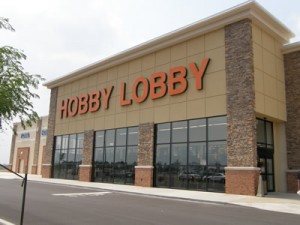 Writing in the New Yorker, Jeffrey Toobin wonders where the Hobby Lobby decision might lead:
Writing in the New Yorker, Jeffrey Toobin wonders where the Hobby Lobby decision might lead:
The great Oliver Wendell Holmes once observed that important Supreme Court decisions “exercise a kind of hydraulic effect.” Even if the authors of such decisions assert that their rulings will have limited impact, these cases invariably have a profound influence. So it has been with Burwell v. Hobby Lobby Stores, Inc., which is less than six months old….
Justice Samuel Alito insisted, in his opinion for the Court, that [the] in decision [in Hobby Lobby] would be very limited in its effect. Responding to the dissenting opinion by Justice Ruth Bader Ginsburg, who called it “a decision of startling breadth,” Alito wrote, “Our holding is very specific. We do not hold, as the principal dissent alleges, that for-profit corporations and other commercial enterprises can ‘opt out of any law (saving only tax laws) they judge incompatible with their sincerely held religious beliefs.’ ” Ginsburg, though, wondered where the guidance was for the lower courts when faced with similar claims from employers with religiously grounded objections to blood transfusions (Jehovah’s Witnesses); antidepressants (Scientologists); medications derived from pigs, including anesthesia, intravenous fluids, and pills coated with gelatin (certain Muslims, Jews, and Hindus); and vaccinations (Christian Scientists, among others).
The problem is not (necessarily) what was decided in the Supreme Court but how that decision will be interpreted in lower courts where, for the most part, it will stay:
A sampling of court actions since Hobby Lobby suggests that Ginsburg has the better of the argument. She was right: the decision is opening the door for the religiously observant to claim privileges that are not available to anyone else.
One such matter is Perez v. Paragon Contractors, a case that arose out of a Department of Labor investigation into the use of child labor by members of the Fundamentalist Church of Jesus Christ of Latter-day Saints. (The F.L.D.S. church is an exiled offshoot of the Mormon Church.) In the case, Vernon Steed, a leader of the F.L.D.S. church, refused to answer questions by federal investigators, asserting that he made a religious vow not to discuss church matters. Applying Hobby Lobby, David Sam, a district-court judge in Utah, agreed with Steed, holding that his testimony would amount to a “substantial burden” on his religious beliefs—a standard used in Hobby Lobby—and excused him from testifying. The judge, also echoing Hobby Lobby, said that he needed only to determine that Steed’s views were “sincere” in order to uphold his claim. Judge Sam further noted that the government had failed to prove that demanding Steed’s testimony was not, in the words of the R.F.R.A., “the least restrictive means of furthering that compelling governmental interest.” That burden seems increasingly difficult for the government to meet…
To repeat a point I made in an earlier post:
It ought to go without saying that religious freedom is part of the bedrock of American liberty, but so too is the notion of equality before the law. There has to be unum, so to speak, as well as pluribus.
